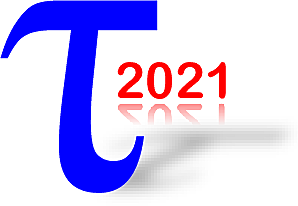Important dates
| Paper submission:
(Submission Open) |
Dec 1, 2019 |
| Acceptance notification: | Jan 11, 2020 |
| Camera ready paper due (for accepted papers): | Jan 18, 2020 |
Call for papers [PDF]
It has become clear that timing analysis is NO longer a solved problem. So, what are new challenges as the industry embraces 7/5/3nm and below, rides the wave of ultra-low-power mobile, wearable devices and jumps on the IoT bandwagon? Are there new issues with older nodes, 14/28nm and up, in new design use cases? How do we model timing/power interactions? How do reliability requirements coming from ADAS/IoT and related impact timing? How to we apply AI/ML/Data Science techniques to the timing domain? How do we meet the insatiable demands for accuracy, performance and functionality? What new fundamental challenges are coming from process physics, 3D, variability, voltage sensitivity, analog effects, mixed signal modeling and validation?The TAU series of workshops provide an informal forum for practitioners and researchers working on these and other temporal aspects of analog and digital systems to disseminate early work and engage in a free discussion of ideas. The twenty-seventh in the TAU series, the TAU 2020 workshop invites submissions and proposals from the traditional as well as emerging areas related to the timing properties of digital electronic systems, including but not limited to the topics listed below.
|
Timing (including incremental timing)
Variability
Characterization
Emerging technologies
|
Modeling and simulation
Power, trade-offs and optimization
Clocking
Others
|
Submission of papers
All papers (including invited papers and camera-ready versions) must be submitted electronically using the EasyChair system using the link under the Logistics tab. We encourage authors to provide their camera-ready versions to arXiv.org.
In order to allow for a blind review, submitted pdf version of the papers should not contain the authors name or any direct reference to the authors. TAU is a workshop aimed at fostering a high level of professional interaction, not a conference. Copies of papers will be provided to the attendees, but the proceedings will not be published by the ACM or the IEEE. Therefore, accepted papers can still be submitted to other conferences and journals.








